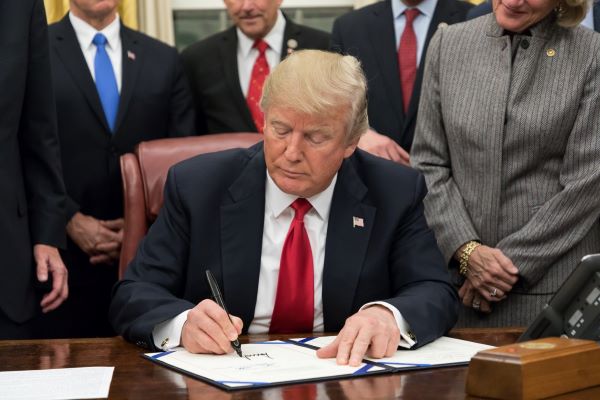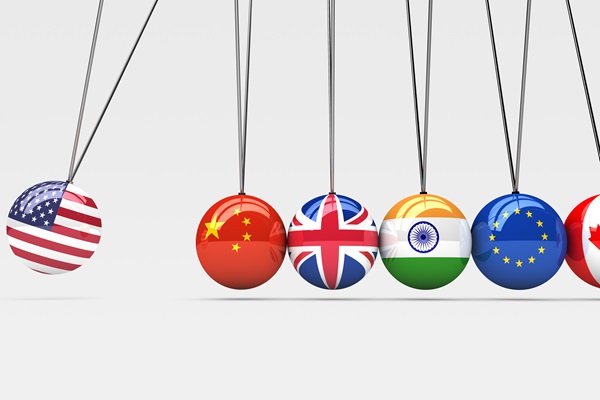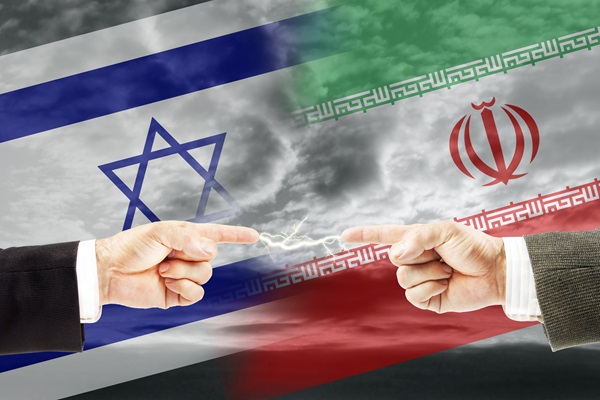.png)
Trump’s Drug Order Is A Wake-Up Call For India’s Pharma Policy
Trump’s price cap move may trigger global pressure on India to dilute its patent regime. New FTAs show signs of troubling concessions.


By Ajay Srivastava
Ajay Srivastava, founder of Global Trade Research Initiative, is an ex-Indian Trade Service officer with expertise in WTO and FTA negotiations.
May 12, 2025 at 7:16 AM IST
Today, US President Donald Trump is set to sign an executive order aimed at slashing prescription drug prices in the US by up to 80%. Under the new Most Favoured Nation pricing rule, the US will peg its drug prices to the lowest charged in any other country. While the move may offer immediate relief to American patients, it will likely trigger a global price recalibration, with pharmaceutical giants intensifying pressure on lower-cost markets like India to raise their prices by tightening patent laws through trade negotiations.
India’s pharmaceutical laws fully comply with the World Trade Organisation’s Agreement on Trade-Related Aspects of Intellectual Property Rights. However, India has long resisted pressure to adopt additional protections, often pushed by developed countries through free trade agreements. These include exclusive rights over clinical trial data, automatic extensions of patent terms, linkage of patent status to regulatory approval, broader definitions of what qualifies as an invention, and practices that allow the extension of monopolies through minor drug modifications.
For instance, India does not allow data exclusivity. Instead, it permits regulatory bodies to rely on existing clinical trial data to approve generic medicines, ensuring faster and cheaper access. It also rejects patent linkage, keeping regulatory approval separate from patent enforcement, which prevents unnecessary litigation that delays generics. Crucially, Section 3(d) of India’s Patent Act blocks evergreening, disallowing patents on minor or trivial changes to existing drugs.
India’s patent regime is not anti-innovation—it is pro-access and pro-affordability. It rewards genuine innovation while curbing monopolistic abuse. By protecting traditional knowledge, rejecting evergreening, and keeping public health at the centre of its intellectual property policies, India has become the global leader in generic drug production, supplying low-cost, life-saving medicines not just to its own population but to large parts of the developing world. From antiretrovirals for HIV to affordable cancer therapies, India’s pharmaceutical industry is vital to global health.
Until now, India has largely withstood foreign lobbying to amend its patent laws. That changed with the India–United Kingdom free trade agreement. For the first time, India agreed to provisions that go beyond its World Trade Organisation commitments, signalling a troubling shift in policy. This concession hands a victory to global pharmaceutical companies and opens the door to further demands in ongoing negotiations with the European Union and the US.
This mounting pressure through trade deals risks eroding India’s carefully balanced intellectual property framework. If India gives in to calls for data exclusivity or longer patent terms, it could weaken competition, delay the entry of generics, and make essential medicines unaffordable for millions, both within India and across the Global South.
Hold the Line
Trump’s Most Favoured Nation pricing policy should be a wake-up call. As pharmaceutical companies face tighter price controls in the West, they will redouble their efforts to raise prices in markets like India. The battleground is no longer just legal—it has moved to trade negotiations. India must respond with strategic clarity and unyielding resolve.
India must treat this moment as a strategic inflexion point. The India–UK FTA should not become a template for future concessions. As global pharmaceutical firms turn to FTAs to extract TRIPS-plus commitments, India must hold the line on its patent regime, one that enables affordable access, prevents monopolistic extensions, and safeguards public health. The world depends on India's generics. Preserving this model is not only in India’s interest but a moral and global necessity.







